

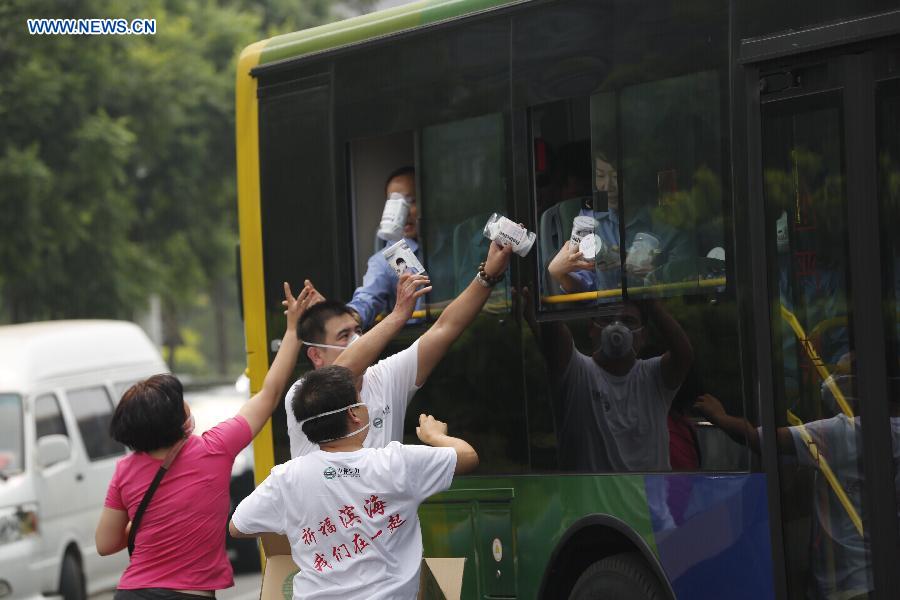 |
| Residents rush to leave after getting an evacuation order near the core area of explosion site in Tianjin, north China, Aug. 15, 2015. All people within 3-km radius are required to evacuate from Tianjin blasts site. (Xinhua/Shen Bohan) |
TIANJIN, Aug. 15 -- Death toll rose to 85 as of Friday night, including 21 firemen, from the massive warehouse explosions hitting north China's Tianjin City Wednesday night, the rescue headquarters said Saturday.
Meanwhile, 721 others were hospitalized, including 25 critically wounded and 33 in serious condition.
Residents in a relocation site of the blasts have been evacuated in fear of chemical pollutants in the air.
People who were relocated at the second primary school of Tianjin Development Zone were transferred on Saturday morning, after receiving an alert of wind change.
Specialized anti-chemical warfare soldiers also entered the core area of blasts site on Saturday morning to search for possible lives.
Specialists investigating in the massive explosions in Tianjin believed the existence of sodium cyanide, a highly toxic inorganic compound, is "possible".
Gao Huaiyou, vice head of the Tianjin administrative bureau of work safety, said in a press conference that the dangerous chemicals stored in the warehouse possibly include sodium cyanide.
But he said further confirmation is still needed, because the containers were not open, and some even not registered. He was not sure how much sodium cyanide, if any, was in storage at the time of blasts.
Some local media reported earlier that Rui Hai Logistics, owner of the warehouse which is licensed to store dangerous chemicals, had as much as 700 tonnes of sodium cyanide, but Gao said it was not yet verifiable.
Measures have been taken to prevent secondary disasters, such as inviting sodium cyanide producing enterprises to help at the site, using hydrogen peroxide to reduce the amount of sodium cyanide, sending a special taskforce to locate and measure the area contaminated by sodium cyanide, and prevent its spreading in sewage.
Some other dangerous chemicals likely to be stored included potassium nitrate, ammonium nitrate.
The warehouse was owned by Tianjin Dongjiang Port Rui Hai International Logistics Co. Ltd., which was founded in 2011 and is a storage and distribution center of containers of dangerous goods at the Tianjin Port.
 |
Day|Week

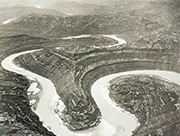 China in 1930s through the lens of a German pilot
China in 1930s through the lens of a German pilot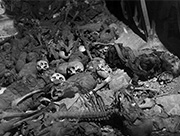 Photos of Chinese forced labors working for Japan revealed
Photos of Chinese forced labors working for Japan revealed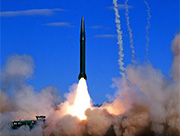 Striking moments of missile launching
Striking moments of missile launching Beauties give cheongsam show on 2,000-meter-high cliff
Beauties give cheongsam show on 2,000-meter-high cliff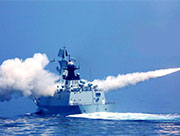 The striking moments of Chinese battleship firing
The striking moments of Chinese battleship firing Chinese people go crazy about the swimming champion Ning Zetao
Chinese people go crazy about the swimming champion Ning Zetao PLA type 96A tanks race in "Tank biathlon" in Moscow
PLA type 96A tanks race in "Tank biathlon" in Moscow Final of 2015 Miss Weihai Tourism concludes
Final of 2015 Miss Weihai Tourism concludes